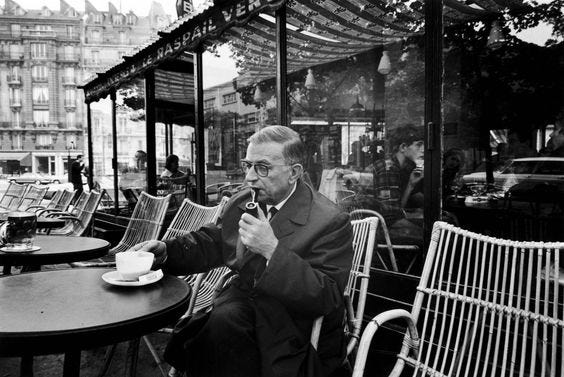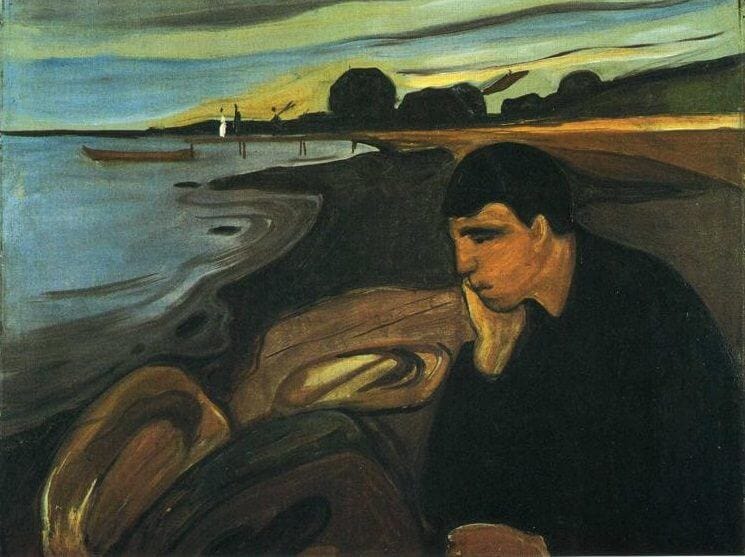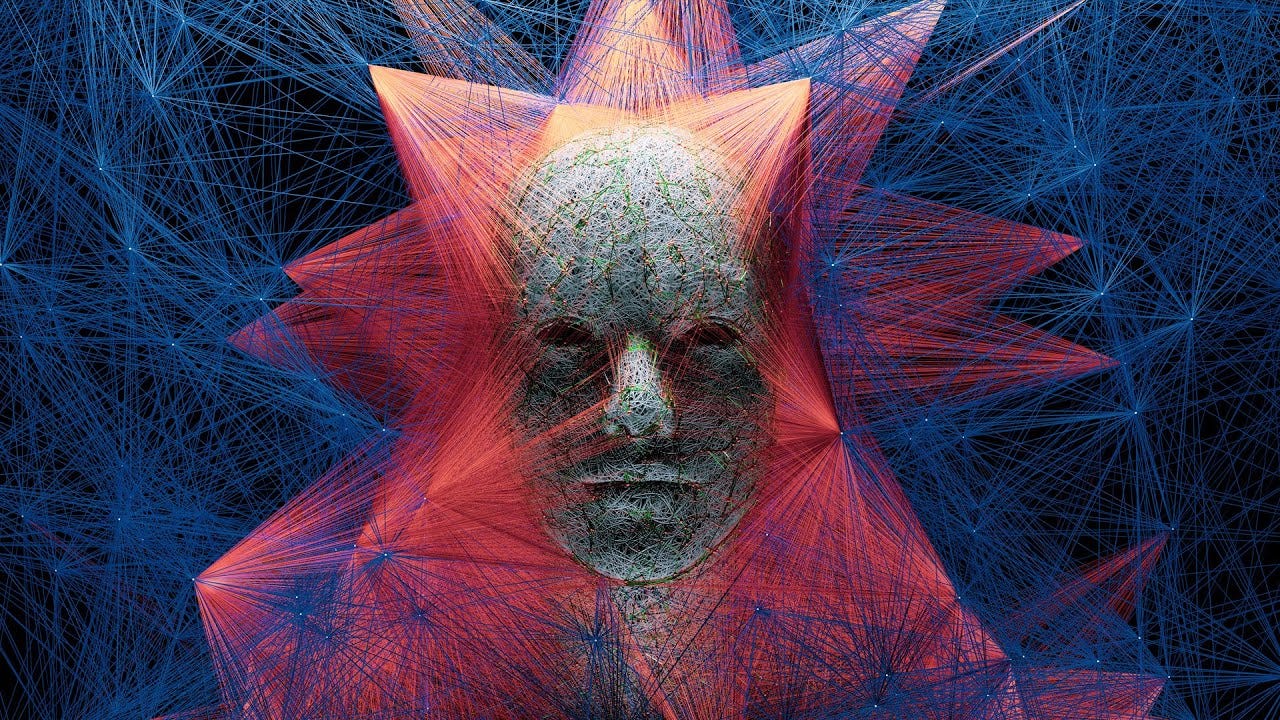Is Existentialism a Humanism?: A Jean-Paul Sartre Philosophical Book Review
What is the meaning of life? Does it mean to say that our existence precedes essence? Or maybe, could the meaning of life have no meaning at all?
Man is nothing other than what he makes of himself. — Jean-Paul Sartre
One of the most enduring questions in philosophy is, “What is the meaning of life?” Throughout history, renowned philosophers such as Gabriel Marcel, Albert Camus, Jean-Paul Sartre, and Friedrich Nietzsche have grappled with this profound question, offering various interpretations that have evolved into distinct philosophical movements. Among these are Existentialism, Absurdism, and Nihilism, each contributing to our understanding of the human experience.
While these philosophies are widely recognized, society cannot universally accept any single interpretation as definitive. This is largely because the meaning of life is subjective and varies from person to person, influenced by individual experiences and beliefs. Existentialism, however, stands out as one of the most broadly accepted frameworks for exploring the complexities of existence, emphasizing personal choice and responsibility in the search for meaning.
What is Existentialism?
In defining Existentialism, it is a philosophy that explores the issue of human existence, with an emphasis on the individual who starts in an apparently meaningless world, and who seeks to create meaning in a world without inherent meaning. Jean Paul-Sartre, one of the distinguished 20th-century French Existentialist philosopher who contributed significant ideas in the field, with his book entitled ‘Existentialism is a Humanism’ (1946), introduces his belief that life is Existentialism in the Humanism sense.
What does it mean to say that existence precedes essence? Our life or human existence, as Sartre believes and defines, is nothing more than a result of an accident, a chance encounter in the universe. Incorporated in the atheistic sense, he introduces a belief that we are condemned to exist and condemned to freedom beyond our own control. Contrary to other philosophers, for Jean-Paul Sartre, life has no meaning, value, or purpose except what our freedom could create and the consequences that resulted over our own responsibility, choices, and actions. We are what we create ourselves to be and the things we do to become who we are. Just like in Hamlet’s Soliloquy, ‘To be or not to be”. Existing is to live or to die.
Existentialism is a Humanism by Jean-Paul Sartre
Published in 1946 by philosopher Jean-Paul Sartre, Existentialism and Humanism (‘L'existentialisme est un humanisme’ in French) is based on a lecture by the same name he gave at Club Maintenant in Paris, on 29 October 1945. This 70 page book tackles the concept about the expression of power that we, human beings have, to produce such freely-willed choices and to make an independent influence of religion or society.
One of the key figures in the existentialist philosophical movement in 20th century sociology, Marxism and French literary studies, Jean-Paul Charles Aymard Sartre was a French philosopher, playwright, novelist, screenwriter, political activist, biographer, and literary critic. Along with Existentialism is a Humanism (1946), his notable books include Nausea (1938), Being and Nothingness (1943), The Words (1963), and more. He was born on June 21, 1905 in Paris, France and died of pulmonary edema in April 15, 1980 in Paris as well.
In his book, Sartre concludes that this said philosophical movement give definition to life, from his own viewpoint, through humanism as it both expresses the power of human beings to make freely-willed choices and become independent of the influence of religion or society. Despite being a fragmentary portrayal of Existentialism to be expected in this short 70 page book, Sartre sophisticatedly managed to describe how existentialism relates to humanism through his conclusive and metaphysical defense that 'Existence precedes essence'. Read by many scholars, readers, and lovers of philosophy, he has given a few items of defenses with viable evidence that, although brief and definite, makes the lecture comprehensible and plausible for any reader. In this book review, expect a short summary and a background of this book as well as my arguments against some of the credibility of Sartre's points.
Main Theme of Existentialism is a Humanism
"Man is condemned to be free; because once thrown into the world, he is responsible for everything he does." — Jean-Paul Sartre
Jean Paul Sartre held the belief that human beings experience distress or anguish, not merely due to life’s hardships or challenges, but rather we are destined to possess freedom. With freedom, we can create meaning out of our lives but at the same time; good or bad, beauty and ugly, the moral or immoral, whilst having and fulfilling the responsibility over our own actions. Even though our circumstances of our birth and upbringing lie beyond our control, Sartre argues that once we attain self-awareness or control over our own consciousness, we must confront the necessity of making choices-choices that fundamentally shape our very own essence, choices that shape who we are, what we are, and what we wish to become. This is where Sartre’s existentialist theory comes in “Existence precedes essence,” implying that our lives gain significance, purpose, and meaning only through our actions and existence itself.
We are all different and diverse in nature, one cannot make the same actions as someone else every time. To put it simply, one’s life can only make meaning from one’s choices, actions, and responsibility. Unlike the established standard that society expects you to be, Sartre maintains that there is no predetermined blueprint dictating how a human, an individual, should live his or her own life, and that there is no divine entity providing us with a specific purpose. Consequently, the responsibility of defining ourselves by humanity rests solely on our own shoulders. No one can tell you who you need to become or how to live your own life. You, alone, can and have the power to make out what you want with your life for we, humans, have freedom and consciousness. With this, we exist and we can now define existentialism, as Sartre originally claimed, inherently humanistic because it acknowledges the interconnectedness of human beings.
With freedom, we can do whatever we want, without external or internal constraints. We possess it to act in ways that shape our desired identities and life paths. According to Sartre, each choice we make not only shapes who we are but also reveals our perception of what it means to be human. This tremendous weight of responsibility that accompanies human freedom condemns us, free men and women, to perpetual anguish and distress, not the hardships in life.
Atheism in Existentialism and Humanism
Surprisingly, I am also fascinated with how Sartre incorporated the theme of atheism in this book. It transformed this short book to be broader, fair, and to retain bias against Christian doctrines. From this, he defended that the destiny and fate of man does not rest to God, but rests to the man alone. But what if God does or does not exist? Does it make a difference? I think not. For whenever we commit ourselves to anything, realizing that we are not only choosing ourselves to be but for the whole mankind, we come to the point where we learn that at the same time, God is not only the legislator, and we, ourselves, comes as a legislator deciding for the whole mankind to be. And with this realization, I come to believe and strongly agree with Sartre that we are condemned to exist for we did not create ourselves and are only here to exist and hence, with our freedom, find our essence.
Arguments
First, Sartre rationalized how we, mankind, exist, encounter ourselves, discover the world, and define ourselves afterwards. One might argue that some people are not entirely conscious of themselves and of other factors and the foundation of human society. Is our unconsciousness an obstacle to existentialism? Or is it the intended ignorance? Self-deception, perhaps?
Then, if 'existence precedes essence', there is no reference to human nature to explain our actions we do for man is free and man is freedom. With this, Sartre states that we are incharge of ourselves and therefore, incharge to make meaning within or beyond it for we are free. We are what we concieve ourselves to be, yet, we are what we will be, and conceive ourselves after already existing. However, I argue that if this is the case, how are we concieved or influenced by other people like our friends and family? Perhaps it is due to the Christian doctrines or a priori, but does a priori or maybe the doctrines in any religion matter or not in the scope of existentialism? I'm still not so sure.
If the second argument might be true, Sartre's defenses will come to a certain point to conclude that we are completely and 100% responsible for our own actions as human beings. Which is probably what this lecture all about. Here, I agree with the standpoint that we are responsible for what we are. Not only for ourselves, but we are responsible for all men. In short, whatever action that we do, we create a certain image as we would have ourselves and for mankind. Sartre said 'In fashioning ourselves, we are fashion men' and if this would be the case Sartre had proposed, I couldn't agree more.
Existing in the 21st Century
Are you living your life or the one society wants you to live?
In the 21st century, we have this world-known stereotype on how society has created a generalized view of humanity's necessity to live up to societal expectations or norms as part of the ‘only’ successful survival known to mankind. Once in our lives, our parents, teachers, and friends have introduced us how we should live our lives, what we need to do, how we need to lead our life, and who we need to become. This is the set of rule known to the world: You’re born, you study hard, ace all those SAT tests, graduate with a Bachelors, Masters, or Doctorate degree, get a 9-5 job, invest and save money, buy and do what you want, marry someone, start a family, work and work until you’ve saved enough money, you retire, get your insurance, and die, burying your body six feet underground. Truly, the majority of us acquired this kind of mindset; In order to live, to be successful, and to be happy is to meet the expectations of society. ‘American Dream’ in other terms, as described by Fitzgerald in The Great Gatsby. Is it right, however, to live our lives society wants us to live? Is this what our existence is supposed to be? Most importantly, is this the meaning of life? A set of steps made by society?
There are a lot of cases, unfortunately, of how one’s life is fully led and controlled by society. Strict parents commanding their children to pursue a career they’ve chosen, such as being a doctor for a large salary, that doesn’t even align with what their children’s dream job is as an example. With this, children are put under pressure, unable to discover their true identity since they cannot locate their hobbies and passions in life. Societal expectations like this limits our capacity to embrace our existence. Say that these children do exist yet their existence has not preceded with much essence since their own existence is decided by other people on who they will become and how they should live their lives. Thus, these children’s existence is shaped by other people. They exist but not fully exist since essence is lost.
Sartre quotes, ‘It is up to you to give it a meaning, and value is nothing but the meaning that you choose. The more sand that has escaped from the hourglass of our life, the clearer we should see through it.’ We exist, we have our own lives, so why must we let other people decide how we live our lives and who we need to become? We are condemned to freedom, man is free so why must we conform to these societal expectations? The choices we make, the actions we take, are our own responsibility, not the responsibility of society. Life may have no meaning at first but you’ll be the one to make purpose out of it, not some divine entity or society. ‘Existence precedes essence.’ You exist and the things you do are the essence of your life; your hobbies, passions, talents, and skills. After all, the best way to live, according to Jean-Paul Sartre, is to live authentically. He further defines that existentialism is to accept the full weight of your freedom in light of the absurd. To exist is to choose. You have to recognize that any meaning your life has, is given to it by you; not society, not anyone, but only you.
Final Thoughts
These are some of the principles of existentialism and how its aspects relate to humanism I learned. Above are some of my arguments I pointed out that may prove existentialism is a humanism from the vantage point of existence precedes essence.
“Man is nothing else but what he makes of himself. Such is the first principle of existentialism.” Jean-Paul Sartre
Hence, to end this great review of this great philosophical book, I conclude that humanity is nothing else but that which we make ourselves to be. In short, Existentialism is a humanism “because we remind man that there is no legislator but himself; that he himself must decide for himself; also because we show that it is by seeking an aim of liberation that man can realize himself as truly human.” Human beings are condemned to exist and are ought to create meaning in our lives through freedom. Our existence initially does not have meaning in the first place but inherently is humanism in nature for we create our own purpose through our choices and actions that fundamentally shape who we are, what we are, and what we desire to be. Although our choices and actions may bear consequences, we are responsible for our actions as to who we are, what we became, and what we have wished for. There is no blueprint, a guide, or a set of rules on how one should exist. You live your life, make meaning out of it, and fulfill your responsibilities as always for Sartre has once claimed that existentialism is a humanism.













